
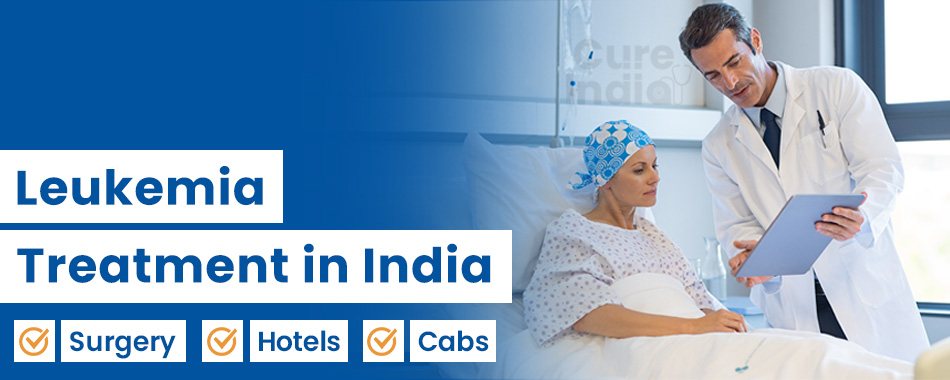
Our body produces millions of blood cells every day. These blood cells are produced inside the bone marrow which is a spongy tissue present in the cavity at the center of the bones. The bone marrow produces blood cells such as red blood cells which circulate the oxygenated and deoxygenated blood in the body, white blood cells which are the immune cells that fight the infection in the body, and platelets which are important clot-forming cells that stop the bleeding.
Before becoming mature, the blood cells go through various developmental stages. When there is a mutation (change in DNA) in the cells of the blood-forming tissue (bone marrow), it cannot function properly and starts producing abnormal blood cells. This is known as Leukemia cancer. It mostly affects the White Blood Cells (WBCs). When leukemia cancer occurs, the WBCs lose their ability to fight the infection in the body and the bone marrow’s ability to produce blood platelets and Red Blood Cells (RBCs) is impaired. When the cells in the bone marrow become cancerous, it starts to multiply at a fast rate and impairs the normal functioning of the blood cells. This medical condition is known as Leukemia or the cancer of blood.
Leukemia cancer can be acute or chronic and is classified into lymphocytic or myelogenous. Leukemia can be caused in children as well as adults but leukemia is more common in children. Child leukemia blood cancer is a fatal disease in Africa that kills thousands of children every year. Due to the lack of advanced medical equipment, only traditional diagnostic and treatment procedures are available in many African countries.

For instance, only 29% of hospitals have qualified surgeons to perform treatment procedures for Leukemia in Uganda and Tanzania. Hence, most of the children are unable to receive proper diagnosis and treatment resulting in a mortality rate as high as 80-90%. Due to this reason, many parents from African countries visit India with their children or family members suffering from leukemia for the right diagnosis and treatment procedures. They choose India due to its highly profitable and affordable treatment procedures and world-class Leukemia hospitals.
India has many expert Leukemia oncologists who have many years of experience and advanced skills in handling patients. The top pediatric oncologists in India are proficient in handling critical cases of leukemia and delivering the right and best treatment. With the best oncologists, Indian hospitals have the most advanced infrastructure and medical facilities that aid in the treatment procedure.
The medical staff in Indian hospitals provide 24/7 patient support and deliver cooperative medical care. In addition to this, the visa application for India is very easy and simple. The top cancer hospitals in India provide different treatment packages that global patients can choose from. African patients have gained the trust of Indian oncologists and cancer hospitals due to reliable lleukemia treatment in India experience that too at a much lower cost.
Leukemia blood cancer is classified into two categories, the first one is acute blood cancer leukemia and the second one is chronic leukemia. Furthermore, leukemia blood cancer is of different types depending upon which cells the leukemia has started. The different types of leukemia in adults are listed below:

Acute blood cancer is the most common type of leukemia. It affects both, the children as well as adults. It may spread to other parts of the body such as the liver, brain, spine, spleen, etc.
AML is more common in adults than in children. It usually starts from the bone marrow and affects the white blood cells which are known as myeloblasts. It can also affect the platelets and red blood cells.
This type of leukemia blood cancer is also more common in adults than in children. It starts from the bone marrow and occurs when there is excess production of lymphocytes which becomes cancerous and hence lose its ability to function normally.
This type of leukemia in adult is less common than other types. It is mostly seen in adults rather than children. About 15% of leukemia cases have chronic myeloid leukemia.
It occurs in the white blood cells (also known as B lymphocytes) and as a result, the white blood cells start to grow rapidly and uncontrollably. It is also a less common form of leukemia.
This is cancer that causes the white blood cells to grow larger and become grainy. This type of cancer may grow either slowly or rapidly. It is a rare type of leukemia cancer.
It is an aggressive form of leukemia that occurs very rarely. It affects the B cells and T cells of the body’s immune system.
Leukemia blood cancer affects the normal production of blood cells, due to which you will have symptoms of anemia, neutropenia, thrombocytopenia, etc. Anemia is characterized by low hemoglobin (RBC) levels in the body and its symptoms include shortness of breath, dizziness, fatigue, skin becoming pale, and getting tired easily during normal activities.
Neutropenia is characterized by decreased levels of neutrophils (WBC type) in the body and its symptoms include fever, infection, and decreased immunity. Thrombocytopenia means you have a low platelet (blood cells that help in the clotting of blood) count and due to this you will bruise easily, your wound will not close easily because the platelet will not be able to clot the blood at the wound site, pain below the ribs, cough, pain while breathing, loss of appetite, weight loss, enlargement of live, spleen, and lymph nodes, night sweats, etc. Besides these, the other common symptoms of leukemia cancer are listed below.
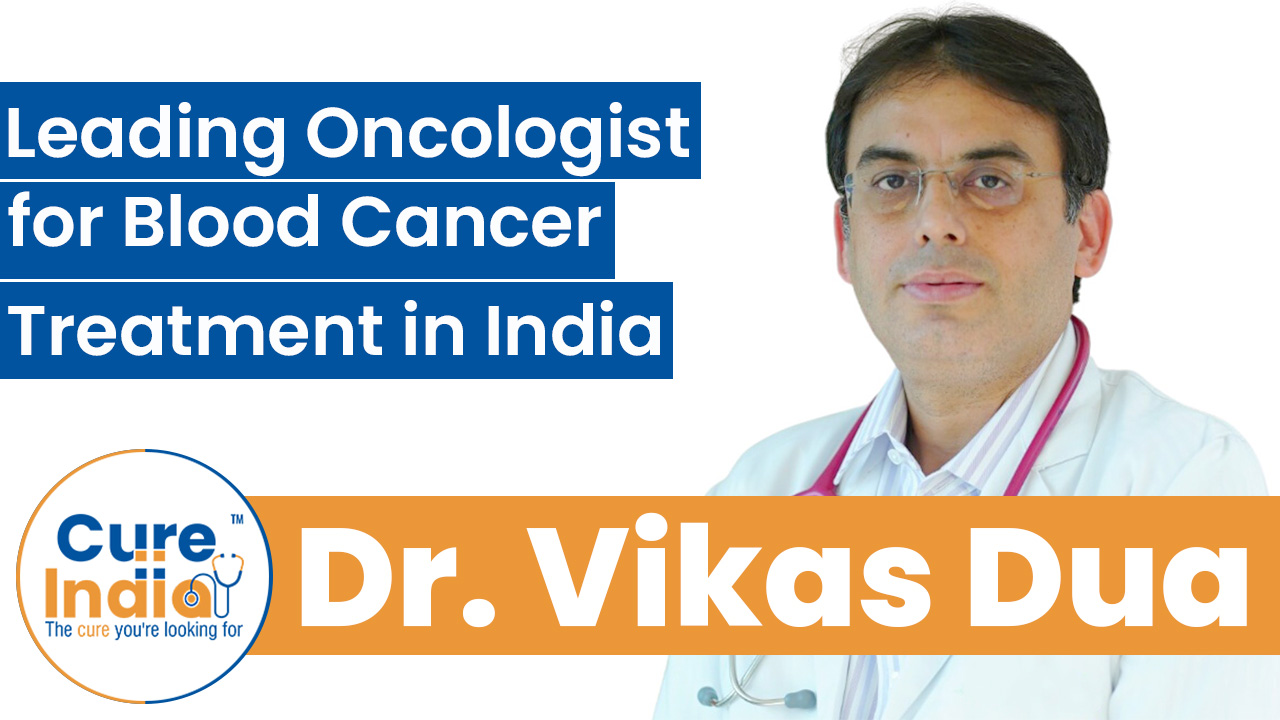
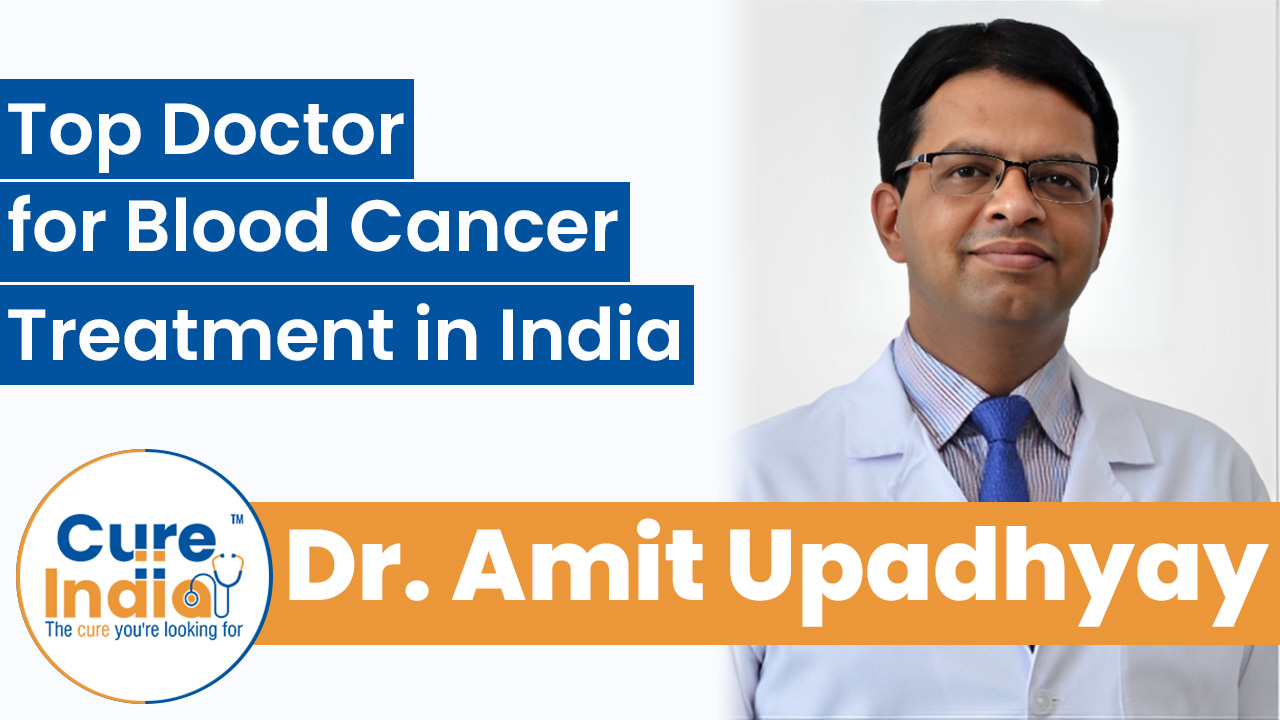
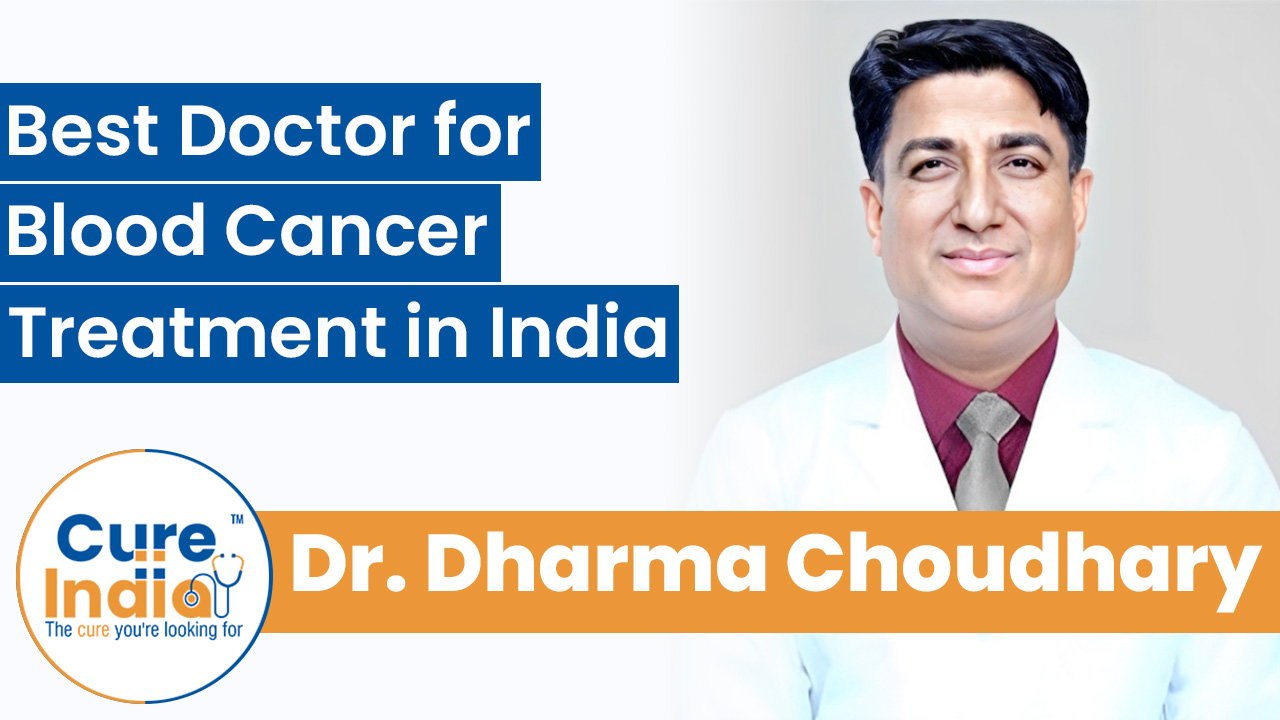
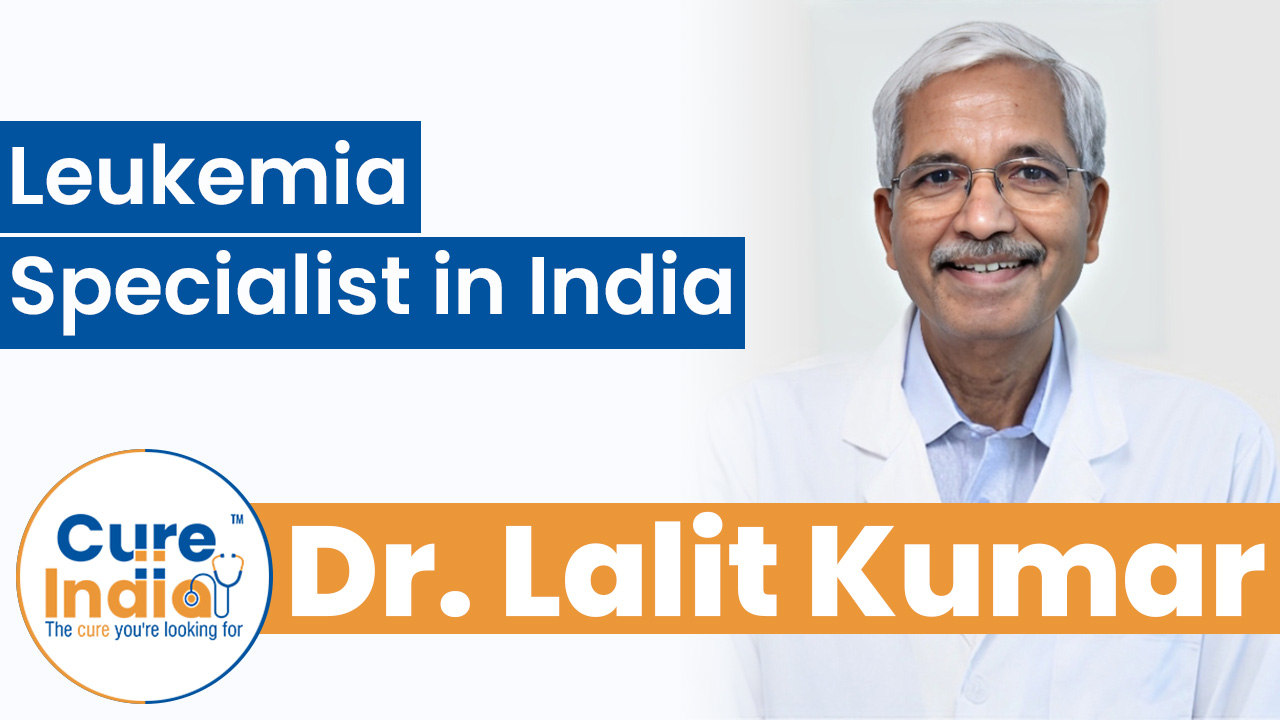
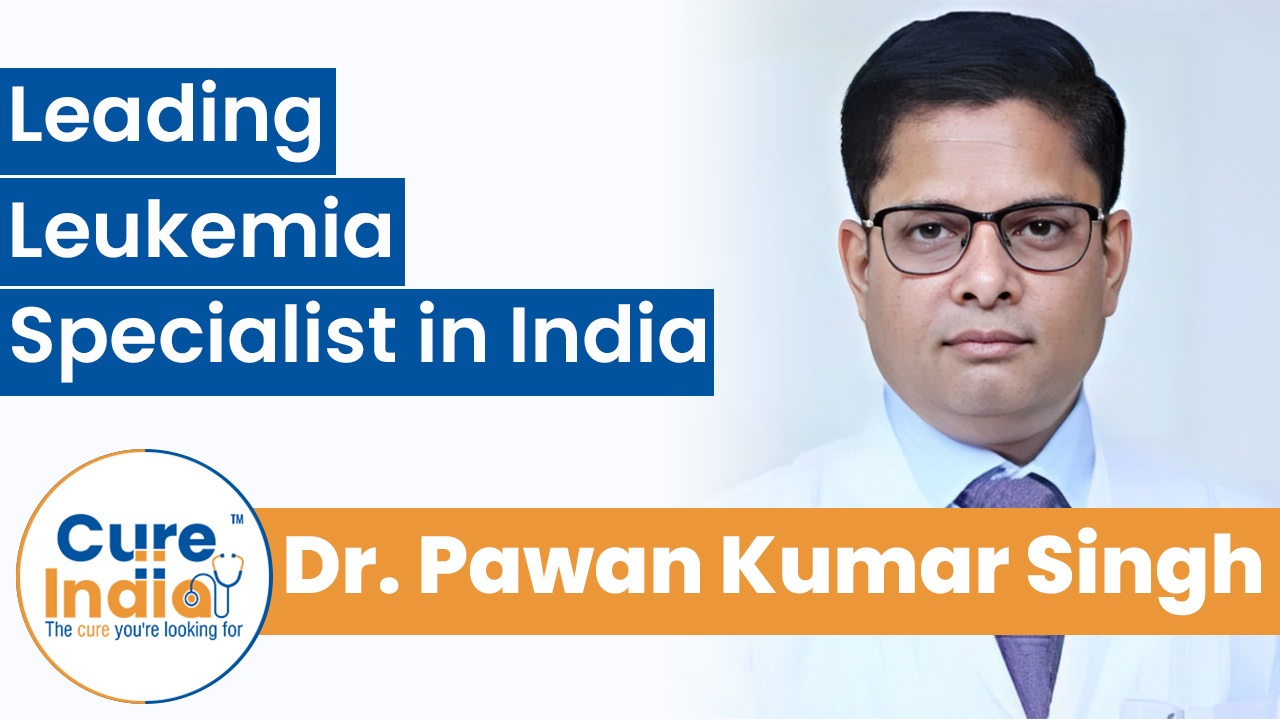

Leukemia is generally caused when there is a mutation (change in the DNA sequence) in the blood cells. DNA is an important component of the cell that contains information about the normal functioning of an organism’s body. The growth rate, functioning, and death rate of the cell are determined by the genetic (DNA) information. But when the DNA is damaged, it causes the abnormal growth and functioning of the cells and in this case (leukemia), it affects the blood cells.
The blood cells like RBC, WBC, and Platelets start as a hematopoietic stem cell, hemo means blood and poiesis means to make. The hematopoietic stem cell divides and forms the myeloid cells or lymphoid cells. The myeloid cells further develop into platelets, RBCs, and WBCs (eosinophils, basophils, and neutrophils) and the lymphoid cells develop into WBCs (natural killer cells and lymphocytes). However, if there is a presence of leukemia cancer, one of the dividing cells becomes cancerous and starts to multiply uncontrollably and forms a tumor inside the bone marrow.
The exact blood cancer causes are not yet known but the studies have shown that there are certain factors that lead to damage in the DNA. These factors or the blood cancer causes include smoking, exposure to carcinogenic chemicals like formaldehyde and benzene, genetic disorders, exposure to radiation, hereditary, extremely unhealthy lifestyle, etc.
The diagnosis of leukemia blood cancer is recommended when the patient has some symptoms like fatigue, sudden weight loss, loss of appetite, night sweats, easily getting bruises and bleeding, etc. For the diagnosis of leukemia cancer, your doctor may run the following tests.
■ Blood Tests: The complete blood count (commonly known as CBC test) report is useful in determining the number of blood cells present in the blood. If you have leukemia, you will have an abnormal amount of blood cells. Also, the microscopic evaluation of your blood will be done followed by a flow cytometry test that helps in the identification of specific types of cells.
■ Bone Marrow Biopsy: In this test, a bone marrow tissue is extracted with the help of a needle and then it is examined under the microscope, and the molecular test that helps in evaluating the chromosomes (DNA) in the cells is done to check the presence of abnormalities in the DNA of the cells that are specific to leukemia is also done.
■ Imaging Tests: The imaging tests like X-rays, CT scans, MRI scans, PET scans, and Ultrasound are done to detect leukemia and whether it has spread in the body, whether there is an infection, whether there is an enlargement in the lymph nodes, and whether there is a presence of other medical problems in the body.
The leukemia blood cancer treatment in India cost around $85,000. The cost of blood cancer treatment in India depends on many factors like the type of treatment, stage and type of leukemia, duration of treatment, patient’s age, overall health, oncologist’s fees, diagnostic tests fees, medication fees, hospital charges, travel, stay, insurance coverage, etc.
The cost mentioned in the above list may vary as per the patient’s condition and how long the treatment takes. This is just an average cost and it may vary from hospital to hospital, and patient to patient because every patient requires a different amount and type of treatment. Some require a combination of treatments whereas some require only a few sessions of treatment. The final cost can be only calculated after the first consultation with your chosen oncologist.
| Treatment | Cost in India | Stay in India |
|---|---|---|
| Leukemia Treatment in India | $85,000 | 45 Days |
Besides that, the cost of cancer treatment in India is much lower than the cost in developed countries. For example, the cost of the same leukemia treatment in the USA ranges from $47,264 to $169,588, and in the UK ranges from $15,754 to $177,187. This is much more than India. Under only the treatment cost in the USA, you can cover travel costs, diagnosis costs, and treatment costs in India.
Besides that, the blood cancer treatment in Indian hospitals is very good. A lot of African people trust Indian cancer hospitals for cancer treatment as they have experienced the type of medical care the Indian hospitals provide. And hence, they recommend their relatives and friends to visit India for the leukemia treatment.
The selection of option for leukemia treatment in India depends on some factors like the patient’s age, overall health, what type of leukemia a patient has, whether the leukemia has spread or not, etc. There are many common and innovative treatment options available for leukemia cancer in India. They are as follows:

It is a medication leukemia treatment and it is the most widely used method of treating any cancer of the body. Your oncologist may recommend either a single medicine or a combination of medicines depending on the type of leukemia you have. These medicines/drugs attack the cancerous cells and destroy them. Your oncologist or a hematologist may give you the prescribed chemotherapy medicines or it is injected into the veins through an IV injection. Sometimes, the chemotherapy medication is injected into the muscles.
In this treatment, high-energy beams or X-rays are used to destroy the leukemia cells. During this therapy, you will lie down on a table and the machine will move around you and direct the radiation on the different targeted points on your body. Depending upon the site of leukemia cells, you may have radiation exposed at certain points or on the entire body.
When there is a presence of cancer cells, our body’s normal immune cells try to destroy them. But these cancer cells are very smart, they hide from our body’s immune cells by restricting antigen recognition. What immunotherapy does is, it stops the cancer cells from hiding so that our body’s immune cells can destroy them.
It is a drug therapy that uses drugs to target the genetic changes and proteins in the cancerous cells. These drugs only target the cancerous cells as the genetic changes and the proteins will be specific to cancerous cells and they are not present in normal cells. This treatment method is also known as Biological Therapy.
Stem cell transplant is also known as a Bone Marrow Transplant. This is done to re-establish the healthy stem cells. This treatment method involves replacing the diseased/cancerous bone marrow with healthy/cancer-free bone marrow (stem cells). You will need a donor for a healthy stem cell (bone marrow) if you cannot use your own stem cells. Before a bone marrow transplant, your oncologist will first give you radiation therapy or chemotherapy to destroy the diseased bone marrow and then you will receive an infusion of the healthy stem cells that reform your healthy bone marrow.
This is an innovative approach to treat leukemia. In this method, first, your T-cells (immune cells) will be taken from your blood, engineered to make them able to fight the cancer cells, and then infused back into your bloodstream. This is known as Chimeric Antigen Receptor-T Cell Therapy (CAR-T cell therapy).
The recovery from leukemia blood cancer can be overwhelming and you might experience an emotional toll. However, it is important to stay strong and follow the instructions of your oncologist. After the blood cancer treatment, you must follow healthy and good lifestyle habits. This will not only protect you from cancer but also help to keep the body fit, and free from any other diseases.
Regular exercise, a healthy and balanced diet, maintaining a healthy body weight, getting good and enough sleep, avoiding alcohol and tobacco products, and reducing stress from your life, etc. can be very helpful in living a healthy and beautiful life. Listed below are the few things that you can follow after the leukemia treatment in India for fast recovery and further maintaining a healthy body.
It will increase your self-esteem, strength and endurance of your body, and improve your sleep quality. It is very beneficial for mental health as well. Exercising is proven to reduce anxiety and depression and enhance the mood. You will feel energetic, fresh, and happy. After the treatment, don’t suddenly start heavy exercise. You can start with low-intensity exercises like slow walks, and then gradually increase your exercises according to your strength.
Eating healthy will not only boost the recovery process but it will also help make your body strong. Make sure to include green leafy vegetables and seasonal fruits (carbohydrates, vitamins, and minerals), healthy fats (nuts and seeds), and a good amount of protein (legumes, pulses, whole grains) in your diet. A healthy body will eliminate all the possible infections and diseases in the body. It will also prevent the blood cancer from recurring.
If you follow the first two points mentioned above, your body will naturally maintain a healthy weight. A healthy body weight not only removes diseases from the body but also eliminates any chances of developing a disease. After the cancer treatment, you might have lost or gained weight, but no need to worry, with a proper diet and regular exercise you will be back to your normal self.
Healthy eating and exercising regularly will be all wasted if you don’t take proper rest. Rest is important for the body to recover from fatigue and buildup of stress. When you sleep, your body starts a mechanism of recovering any damage present in the body, even the minor injury. But if you avoid sleep, your body does not get the time to recover and hence, it not only fails to provide freshness and strength to the body, but it also invites diseases in the body.
Leukemia cancer is a cancer of the blood and it requires treatment as soon as possible as the blood is an important component of the body and if it is compromised, the entire body is affected. It carries the good materials in the body and removes the bad materials from the body. If left untreated, people can live for a few years but they will get extremely susceptible to infections, fatigue, bleeding, etc. until finally, the body becomes extremely fragile, making even a minor infection or an injury a serious condition and resulting in death.
Due to insufficient diagnostic and therapeutic facilities, many African leukemia cancer patients visit India with their family/friends to receive proper diagnosis and treatment. As the treatment cost is low in India, they can afford to visit India and the treatment procedures in India seem reliable to them because of premium medical service and the latest infrastructure of the Indian cancer hospitals. Indian oncologists and hematologists are highly experienced and have many years of knowledge.
The medical staff is highly cooperative, especially with the international patients as they are away from their motherland and need support in the new country. The cancer hospitals in India also provide 24-hour patient support so that you can call and ask any query and questions you have before, during, and after the leukemia treatment in India.
